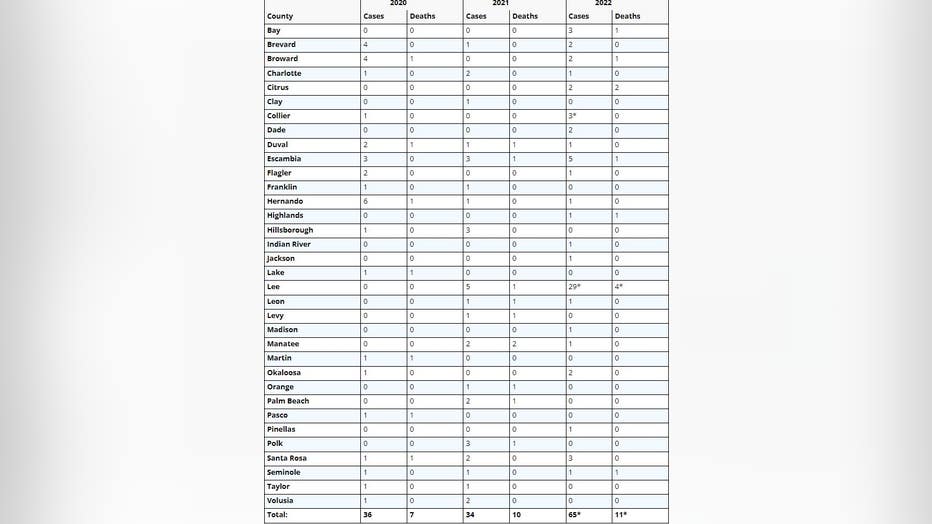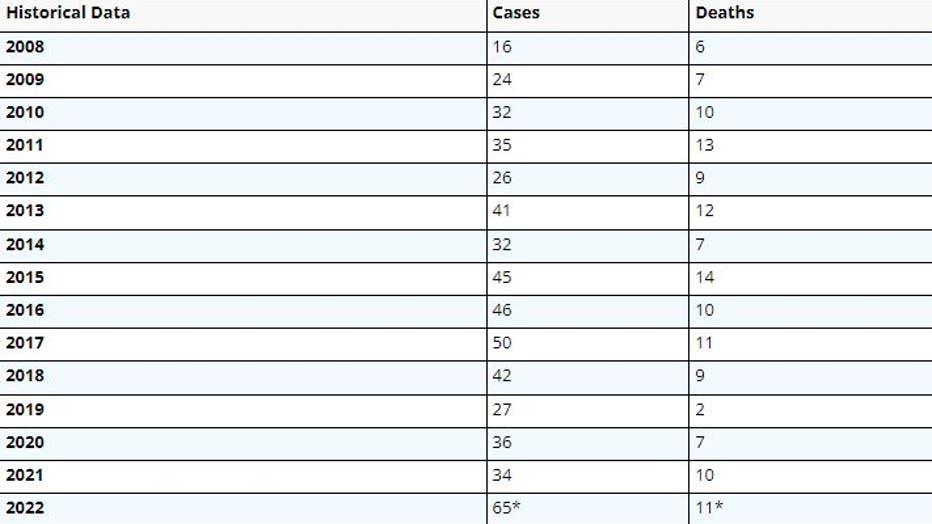Flesh-eating bacterial infections, deaths increase in Florida after Hurricane Ian

Flesh eating bacteria on the rise in Florida
Following Hurricane Ian, the threat of flesh eating bacteria has risen dramatically in Florida
Hurricane Ian brought more than just storm surges and coastal flooding to the sunshine state. The deadly storm bought along a life-threatening flesh-eating bacterial infection that nearly doubled in the state since last year.
So far, there have been a total of 65 confirmed cases of Vibrio vulnificus in Florida, along with 11 deaths, according to the Florida Health Department's website.
Vibrio vulnificus is a naturally occurring bacteria in warm, brackish seawater, the website states. Brackish water is a mixture of fresh and salt water and often found where rivers meet the sea.
Although many get Vibrio vulnificus from eating raw or undercooked seafood, it's not uncommon for some to get the infection through an open wound. Hurricanes have been linked to Vibrio vulnificus because of the storm surges and coastal flooding it leaves behind.
Counties that saw the highest numbers related to Hurricane Ian were Lee and Collier.

Credit: Florida Department of Health
In 2021, Lee County recorded five cases of the infection, but after Hurricane Ian, 29 cases have since been confirmed.
What are the signs and symptoms of Vibrio vulnificus infection?
- Watery diarrhea, often accompanied by stomach cramping, nausea, vomiting, and fever
- For bloodstream infection: fever, chills, dangerously low blood pressure, and blistering skin lesions
- For wound infection, which may spread to the rest of the body: fever, redness, pain, swelling, warmth, discoloration, and discharge (leaking fluids).
How can I prevent a Vibrio wound infection if I have a wound?
- If you have a wound (including from a recent surgery, piercing, or tattoo), stay out of saltwater or brackish water, if possible. This includes wading at the beach.
- Cover your wound with a waterproof bandage if it could come into contact with saltwater, brackish water, or raw or undercooked seafood and its juices. This contact can happen during everyday activities, such as swimming, fishing, or walking on the beach. It could also happen when a hurricane or storm surge causes flooding.
- Wash wounds and cuts thoroughly with soap and water after they have contact with saltwater, brackish water, raw seafood, or its juices.
Here is a breakdown of cases in Florida since 2008:

Credit: Florida Department of Health

